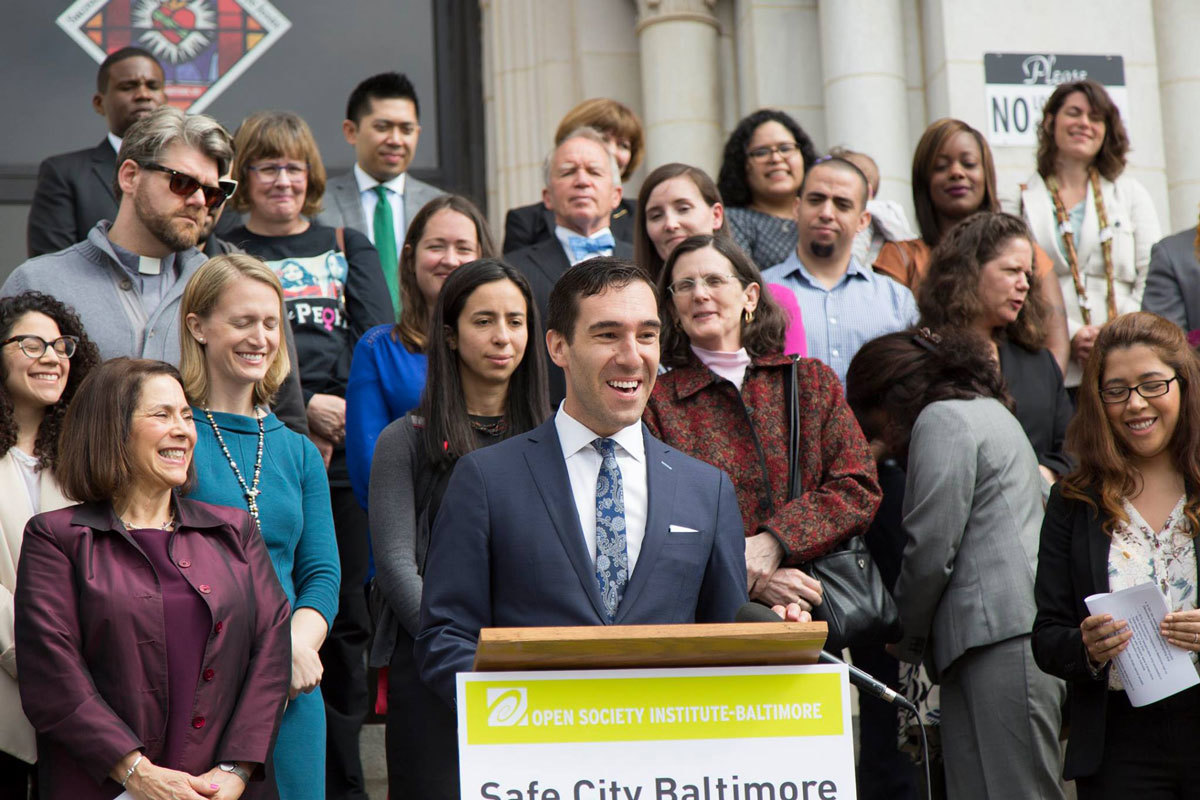
Mayor Catherine Pugh announced last week that the City of Baltimore would increase its support to provide legal representation to immigrants facing deportation. This effort is just one part of the Safe City Baltimore Fund launched in April with Open Society Institute (OSI) Baltimore to protect the city as a whole.
“Providing legal representation to those facing deportation maintains trust in law enforcement and our local institutions and keeps us all safe,” Mayor Pugh said in a statement. “If our residents don’t feel safe, all of us are at more risk.”
Baltimore is now one of 11 locations around the country that are a part of the SAFE (Safety and Fairness for Everyone) Cities Network, a group that is funded by the Vera Institute of Justice and devoted to protecting immigrants. Prince George’s County was the only other Maryland jurisdiction chosen for the initiative.
Under the program, the city is required to invest public dollars that are then matched by the SAFE Cities Network to provide legal counsel to detained Baltimore City residents facing deportation. Catalina Rodriguez-Lima, director of the Mayor’s Office of Immigrant and Multicultural Affairs (MIMA), said the city plans to invest $100,000 that will be supplemented by the catalyst fund from the Vera Institute, which combined will be enough to help 40 residents attain legal assistance.
“The great thing about partnering with Vera is that they will be providing technical assistance to our offices,” Rodriguez-Lima said. “Also, as part of the project, they’ll be collecting data on the cases—everything from the impact on the families to the impact of the city’s economy.”
The catalyst fund from the Vera Institute will be dedicated solely to residents who have been detained. But now, under the Safe City Baltimore initiative with OSI, there is additional funding to help those individuals seeking an attorney who have not yet been arrested. Tracy Brown of OSI Baltimore said that more than $500,000 was raised to address the growing need for training and coordination of pro bono attorneys, as well as education on basic rights.
“The risks of deportation are so huge,” Brown said. “When you think about how difficult it is for an immigrant to assert legal rights in that kind of high stakes position without an attorney, it’s really an insurmountable burden.”
On Wednesday, Rodriguez-Lima announced that four nonprofit organizations in Maryland would receive funding from the combined fund: the Catholic Charities Esperanza Center, the Pro Bono Resource Center of Maryland, the University of Maryland Carey School of Law, and the Capital Area Immigrants’ Rights (CAIR) Coalition, which will handle the defense for detained residents facing deportation.
“They all have a separate service that we believe combined can really have an impact in the City of Baltimore,” Rodriguez-Lima said. “So having the multi-prong approach, that can target populations at various levels in the immigration process, we can help approximately 900 people.”
All services will be free to Baltimore City residents who meet the income requirements. Rodriguez-Lima says the typical deportation defense is challenging and requires a lot of money and effort to yield positive results. She believes that MIMA’s partnership with OSI Baltimore and the Vera Institute is a step in the right direction.
“It’s really about basic fairness—it’s a due process issue,” she said. “I think as a city, that’s the minimum we can do. By doing that, we can protect children and keep families together.”
